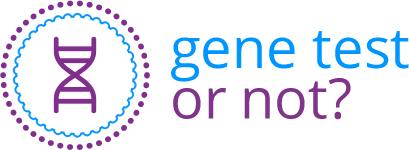Your results to help you decide
1. Does my family history put me at a higher risk for Alzheimer’s disease than other people?
If a member of your immediate family (parents or siblings) has been diagnosed with late-onset Alzheimer’s disease, you may have an increased risk of developing Alzheimer’s disease.
2. Will the genetic test give me useful information?
The gene test for late-onset Alzheimer’s disease can reveal an increased chance of getting the disease, but it cannot predict for sure if you will develop it — or if you won’t. By current estimates, if you have one copy of the APOE e4 gene, your risk of getting the disease by age 85 is slightly more than twice that of the general population. If you have two copies of the APOE e4 gene, your risk of getting the disease by age 85 is three to four times higher than the general population. However, many people with the APOE e4 gene will not get Alzheimer’s disease, and people without the gene can develop it.
3. Is this the right time in my life to take this test?
Timing of genetic testing is important. It is best done when things are calm enough in your life so you have time to think it through.
4. Will the advantages outweigh the disadvantages?
Genetic information has personal, family, and societal consequences. Concerns include worrying too much if you have the gene, feeling helpless, potential family conflict, and possible effects on insurance coverage. Possible benefits include being able to plan ahead, keeping up to date on new information, getting family support, the ability to participate in research, and the opportunity to make appropriate lifestyle changes.
Conclusion
